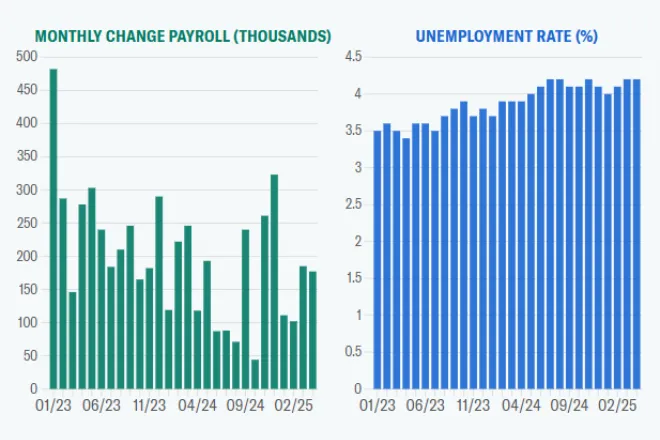Federal Reserve Governor Adriana Kugler cautions that Trump tariffs will increase consumer prices while reducing household incomes across the economy.
Contents
- 1 Trump Tariffs Create Economic Challenge for Federal Reserve
- 2 Fed Officials United on Trump Tariffs Impact
- 3 Trump Tariffs Expected to Drive Inflation Higher
- 4 Businesses Plan to Pass Trump Tariffs Costs to Consumers
- 5 Federal Reserve Holds Rates Steady Amid Tariff Uncertainty
- 6 White House Pressures Fed as Trump Criticizes Powell
- 7 Long-Term Concerns About Trump Tariffs Impact
- 8 About H2T Finance
Trump Tariffs Create Economic Challenge for Federal Reserve
Federal Reserve Governor Adriana Kugler delivered a stark warning Monday about the economic impact of Trump tariffs, stating they will function as a “negative supply shock” that raises prices while decreasing economic activity.
“Although higher tariffs on US imported goods may affect our macroeconomy through many channels… I think they will primarily act as a negative supply shock, raising prices and decreasing economic activity,” Kugler explained during her address in Dublin, Ireland.

The comments come as the United States and China announced a 90-day cooling-off period, reducing tariffs by 115 basis points while the two sides negotiate fairer trade terms. The US tariffs on Chinese goods will be reduced from a top rate of 145% to 30%, while China’s retaliatory tariffs will be reduced from 125% to 10%.
Fed Officials United on Trump Tariffs Impact
Kugler is not alone. Other senior Fed officials, including Governor Michael Barr and New York Fed President John Williams, have also repeatedly warned about the economic consequences of Trump tariffs. They are particularly concerned about the risk of higher inflation, higher unemployment, and slower economic growth as a result of the trade policy.
These warnings illustrate the difficult position the Fed faces as it tries to balance its two main missions: maintaining stable prices and maximizing employment. However, the full impact of the tariffs remains unclear.
Trump Tariffs Expected to Drive Inflation Higher
Despite the recent 90-day pause in tariff escalation, Kugler emphasized that the announced Trump tariffs are still “much higher” than those seen in recent decades, and their economic impact will be significant even at current levels.
The Federal Reserve governor warned that tariffs will lead to:
- Higher consumer prices.
- Decreased household purchasing power.
- Increased business operating costs.
- Reduced consumer demand.
- Lower business investment.
See more related articles: Fed interest rates traders scale back cuts
Businesses Plan to Pass Trump Tariffs Costs to Consumers
Kugler cited a Dallas Fed survey that found 55% of business executives expect to pass on most or all of the increased costs from tariffs to consumers. Specifically:
- 26% plan to raise prices immediately upon tariff announcement.
- 64% expect to implement price increases within three months of tariffs taking effect.
This suggests consumers may feel the impact of Trump tariffs quickly through higher prices.

Federal Reserve Holds Rates Steady Amid Tariff Uncertainty
Given what Kugler describes as “upside risks to inflation” combined with the current “somewhat restrictive” interest rate level, she supported last week’s unanimous Federal Reserve decision to maintain benchmark interest rates in the range of 4.25% to 4.5%.
The rate is set after the Fed has already cut by 1 percentage point by the end of 2024. However, traders are now lowering expectations for further cuts, with the probability of a June rate cut now at 8%, and the market is expecting only two cuts this year, with the first expected in September.
White House Pressures Fed as Trump Criticizes Powell
The White House is intensifying pressure on the Federal Reserve to lower rates to offset potential economic slowdowns resulting from Trump tariffs. Trump himself has repeatedly called for lower interest rates, recently claiming that Fed Chairman Jerome Powell “doesn’t want to lower rates because he’s not in love with me.”
In a social media post Thursday, Trump wrote: “‘Too Late’ Jerome Powell is a FOOL, who doesn’t have a clue.”
Long-Term Concerns About Trump Tariffs Impact
Beyond immediate price increases, Kugler expressed concern about the long-term economic effects of Trump tariffs, including potential negative impacts on productivity. As businesses adjust to higher parts costs and reduced demand, she anticipates they may:
- Reduce capital investment.
- Shift to less efficient production methods.
- Face higher input costs that impact numerous goods and services.
“With inflation and employment potentially moving in opposite directions down the road, I will closely monitor developments as I consider the future path of policy,” Kugler concluded.

Her comments also touched on a worrying rise in long-term inflation expectations from the University of Michigan survey, which just hit its highest level since June 1991. As tariff uncertainty continues to weigh on economic expectations, the Federal Reserve is operating in an increasingly complex environment where the full impact of Trump tariffs on American consumers and businesses remains unclear.
